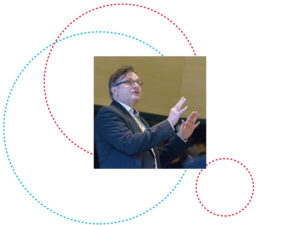Prof. Andreas Irmen recently delivered a lecture dedicated to the 2018 Nobel Prize in Economics, outlining the laureates’ research into climate change, technology creation and economic growth.
The Nobel Prize in Economics 2018 lecture was organised by the European Court of Auditors, headquartered in Luxembourg, in honour of the two recipients of the 2018 prize, Prof. William D. Nordhaus (Yale University) and Prof. Paul Romer (New York University).
In his lecture, Prof. Irmen outlined the research programmes of both laureates. Prof. Nordhaus received the prize for his research on climate change and long-run economic growth. In his research, Nordhaus has developed sophisticated economic models that describe the complicated interaction between economic activity and climate change. These models have been widely used to predict the increase in the global temperature and to analyse the potential effect of climate policy proposals. A prominent user of Nordhaus’ research is the Intergovernmental Panel on Climate Change (IPCC). Nordhaus’ research suggests that a global carbon tax is the best way to combat climate change.
Prof. Romer’s work studies the causes and the consequences of knowledge creation in market economies. Romer emphasizes that ideas systematically differ from other economic goods. First, he argues that, ideas are non-rival. Unlike a hammer or a car, an idea like the Pythagorean Theorem can be used by many people at the same time. Hence, new ideas expand the set of existing ideas that researchers can use to create new ideas. Through this channel new ideas facilitate the creation new ideas.
Second, Romer points out that a successful inventor must have a means to exclude others from using or copying his idea. A well-designed patent law may achieve this purpose. According to Romer, patent laws should strike the right balance between the motivation to create new ideas – by giving some monopoly rights to developers – and the ability of others to use them – by limiting these rights in time and space. Romer’s most important contribution laid the foundation for a new research programme called endogenous growth theory which generated vast amounts of new research into the regulations and policies that encourage new ideas and long-term prosperity.
The lecture was hosted for an audience of experts from within the Court and affiliated European institutions to promote knowledge building in the research field addressed.
Prof. Irmen is professor of macroeconomics and applied microeconomics at the University of Luxembourg. His research interests include economic growth, the economics of innovation, digitisation and automation, population economics and public economics. He publishes regularly in top academic journals in the field of economics. He also serves as the programme director of the MSc in Quantitative Economics and Finance.
